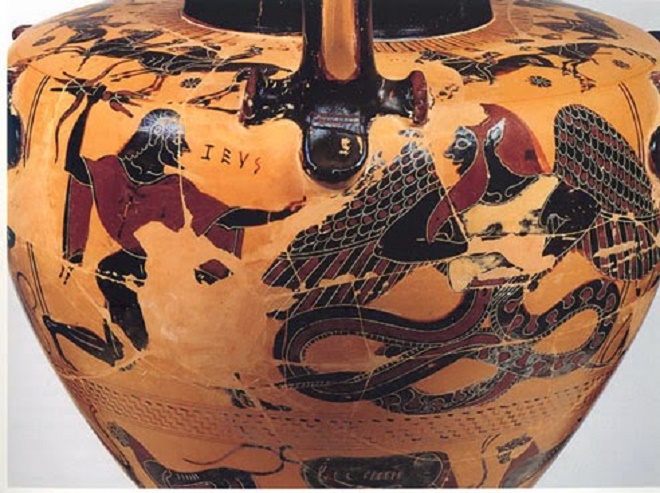Magus
Active Member
Hebrew is a dialectic form of Phoenician and written in the Imperial script of the Persian empire.
YHWH (Hebrew) is a dialect form of IEVE ( Phoenician ) and in Ancient Greek it is IEVS.
5th Century BCE - IEVS

The name 'Zeus' in ancient Greek is pronounced 'Zefs'
Ieus - 'Yehf ' ( Iahv ) ( Yahve / Jove),
Ieue ' Yehf
There is a word in Linear B, 'Yav etos' , in Greek it is 'Iap'etus' and it exists in Hebrew as Yehf'eth -יֶפֶת- , here the 'Ph' or 'F' sound is preserved.
In theory, the correct pronunciation is then 'Yehf', or 'Yef'
When the Achaemenids extended their rule westward, they adopted this language as the vehicle for written communication between the various regions of the vast empire with its different peoples and languages. The use of a single official language, which modern scholarship has dubbed Official Aramaic or Imperial Aramaic, can be assumed to have greatly contributed to the astonishing success of the Achaemenids in holding their far-flung empire together for as long as they did
YHWH (Hebrew) is a dialect form of IEVE ( Phoenician ) and in Ancient Greek it is IEVS.
5th Century BCE - IEVS

The name 'Zeus' in ancient Greek is pronounced 'Zefs'
Ieus - 'Yehf ' ( Iahv ) ( Yahve / Jove),
Ieue ' Yehf
There is a word in Linear B, 'Yav etos' , in Greek it is 'Iap'etus' and it exists in Hebrew as Yehf'eth -יֶפֶת- , here the 'Ph' or 'F' sound is preserved.
In theory, the correct pronunciation is then 'Yehf', or 'Yef'
